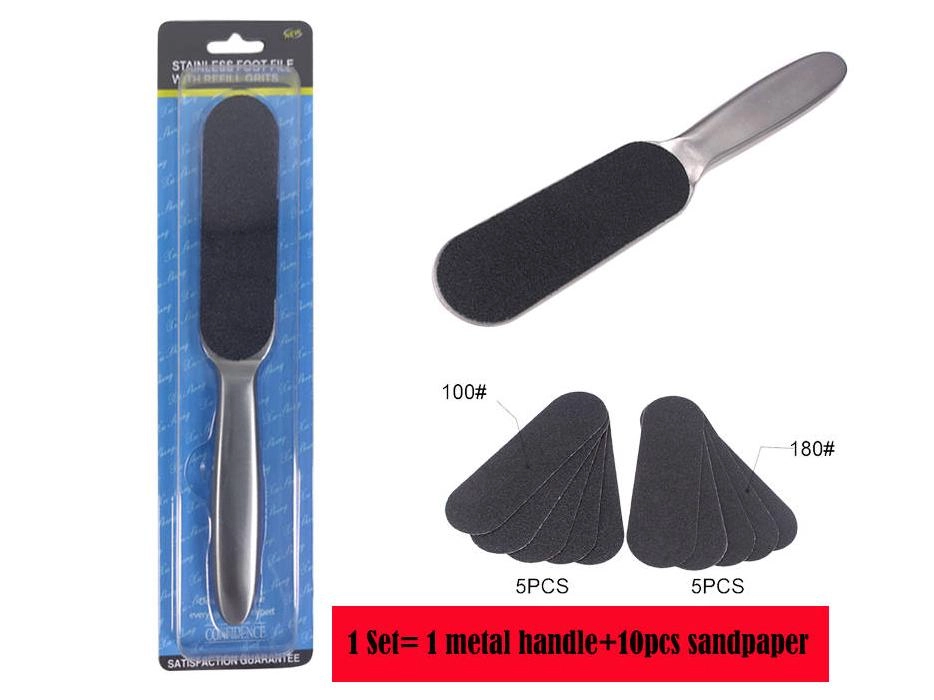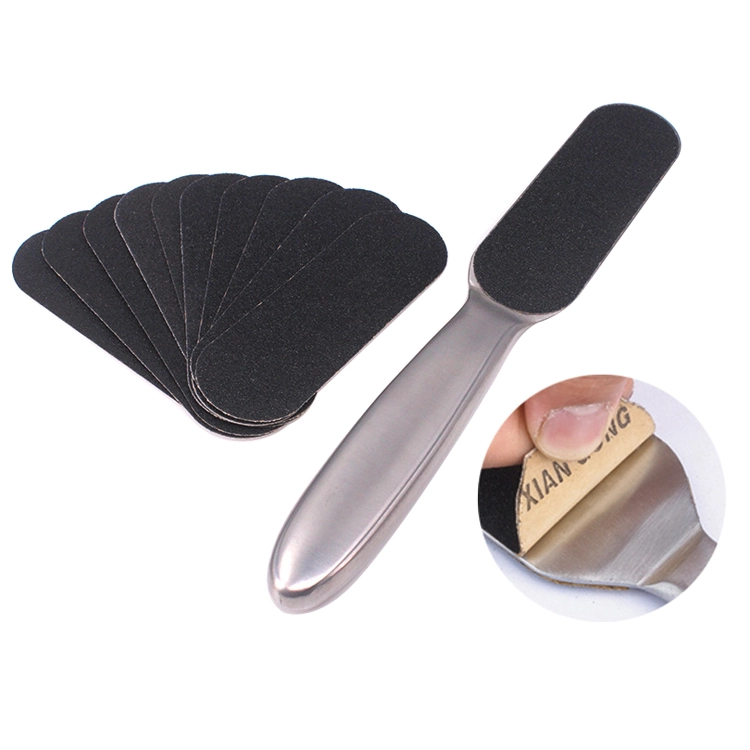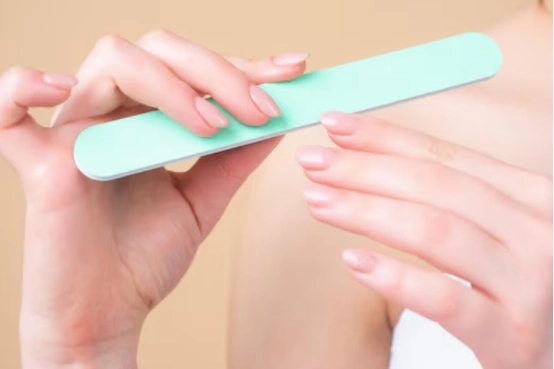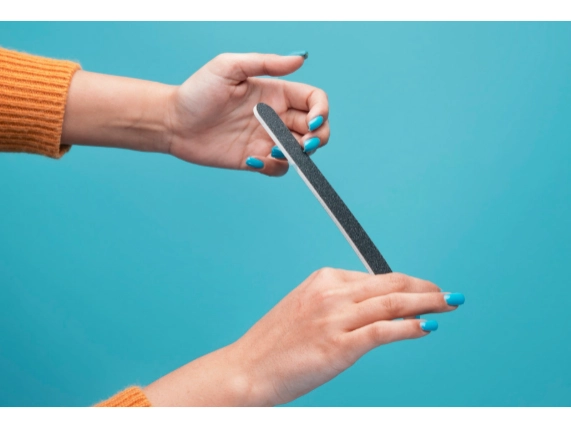Cracked heels aren’t just a looks problem—they can hurt, feel uncomfortable, and even cause infections if ignored. To get smooth, healthy feet, picking the right foot care tool is key. A good foot file for cracked heels makes a big difference. This guide helps you choose and use foot files to fix dry, rough heels.

Understanding Cracked Heels and Why They Happen
Common Causes of Dry, Cracked Heels
Cracked heels come from super dry skin that loses its stretch. Standing for hours, wearing open-back shoes, being overweight, or having conditions like diabetes or eczema can cause this. Cold weather or dry air also pulls moisture from your skin.
Why Regular Foot Care Matters
Taking care of your feet stops cracks from forming. Scrubbing off dead skin regularly keeps it from turning hard and painful. Using a thick foot cream every day locks in moisture. Wearing comfy shoes helps ease pressure on your heels.
How Foot Files Help Your Heels
Foot files scrape off thick, dead skin on your heels. This makes them smooth and helps creams soak in better. Dual-Sided Coarse Callus Remover Pedicure Rasp Foot Scrubber Wood Handle Pedicure Foot File For Cracked Heels Tough Dead Skin is made to tackle hard skin.
What to Look for in a Foot File
Types of Materials and How Well They Work
The material of a foot file affects how good it is for cracked heels.
Metal Foot Files
Metal files are tough and great at removing hard calluses fast. High quality professional stainless steel pedicure foot file with refill sandpaper is strong and clean because you can swap out the rough parts.
Ceramic Foot Files
Ceramic files are gentle but still get the job done. They’re good for sensitive skin. They’re easy to clean but wear out quicker than metal.
Glass and Crystal Foot Files
These are best for light touch-ups, not heavy calluses. They’re clean and safe but not great for deep cracks.
Electric vs. Manual Foot Files
Electric foot files are easy and steady, perfect if you don’t move easily or have little time. Manual files let you control the pressure and how you scrub.
Design Features for Easy Use
Comfy Handles
A handle that fits your hand makes filing easier and less tiring. Professional high quality wooden handle foot repair file wood pedicure foot file dead skin callus remover has a solid wooden handle for better grip during home pedicures.
Two-Sided Surfaces
A file with a rough side and a smooth side works best. One side tackles thick calluses, and the other polishes off leftover roughness.
Lasting Quality and Easy Care
Strong materials like stainless steel or good emery last a long time. High quality stainless steel replaceable sandpaper metal foot file for salon using has swappable sanding pads to keep it clean and usable longer.
Top Types of Foot Files for Cracked Heels
Manual Foot Files with Rough Grits
Manual files are cheap, simple, and work well if used right.
Why Heavy-Duty Rasps Are Great
Rasps like Dual-Sided Coarse Callus Remover Pedicure Rasp Foot Scrubber Wood Handle Pedicure Foot File For Cracked Heels Tough Dead Skin clear thick skin fast without hurting the good skin underneath.
Tips for Safe Use at Home
Use manual files on dry feet unless the instructions say otherwise. Press lightly and move in one direction, not back and forth. Clean the file well after each use to avoid germs.
Electric Callus Removers for Deep Scrubbing
Electric files are fast and easy, especially for tough calluses or people who can’t move their hands much.
Features for Better Use and Safety
Pick models with different speeds, safety guards, waterproof designs, and rechargeable batteries. These make the file work well and keep you safe.
Rechargeable vs. Battery-Powered
Rechargeable files save money over time and have stronger motors. They’re great for people who need to scrub their heels often.
How to Use a Foot File the Right Way
Getting Your Feet Ready
Prep your feet to make filing work better.
Soaking to Soften Skin
Soak your feet in warm water with Epsom salt or mild soap for 10–15 minutes. This softens tough skin, making it easier to file without hurting.
Step-by-Step Guide to Safe Filing
- Dry your feet well after soaking.
- Pick the right grit for your heels.
- Hold the file by its comfy handle.
- Rub the rough side gently over hard spots, using downward strokes.
- Switch to the smoother side to finish up.
- Wipe off dust with a towel as you go.
- Rinse your feet and add lots of moisturizer after.
Aftercare for Soft, Smooth Heels
Put on a thick cream with urea or shea butter right after filing. Wear cotton socks overnight to lock in moisture. Do this weekly or every two weeks, depending on how rough your heels are.

Choose Felice means you choose a professional and reliable partner. For top-notch pedicure tools to fix cracked heels, Felice offers great options like our Dual-Sided Coarse Callus Remover Pedicure Rasp Foot Scrubber Wood Handle Pedicure Foot File. Made with sturdy wooden handles and emery surfaces, these tools are reusable, natural, easy to hold, and super effective at bringing back soft heels. Ready to ditch cracked heels for good? Grab Felice’s best foot file today and start your journey to healthier feet.
FAQ
Q: How often should I use a foot file to keep my heels smooth?
A: It depends on how rough your heels are. For mild dryness, file once a week. If you have deep cracks, try every 3–4 days until they improve, then switch to weekly. Always follow with a good cream to lock in softness.
Q: Can foot files help with foot pain caused by cracked heels?
A: Yes, by removing hard, dead skin, foot files reduce pressure on cracked areas, which can ease pain. Pair filing with cushioned shoes and moisturizer for better comfort.
Q: Are there foot file options for people with sensitive skin?
A: Look for files with finer grits or softer materials like pumice. These are gentler and less likely to irritate. Test on a small area first and avoid over-filing.






